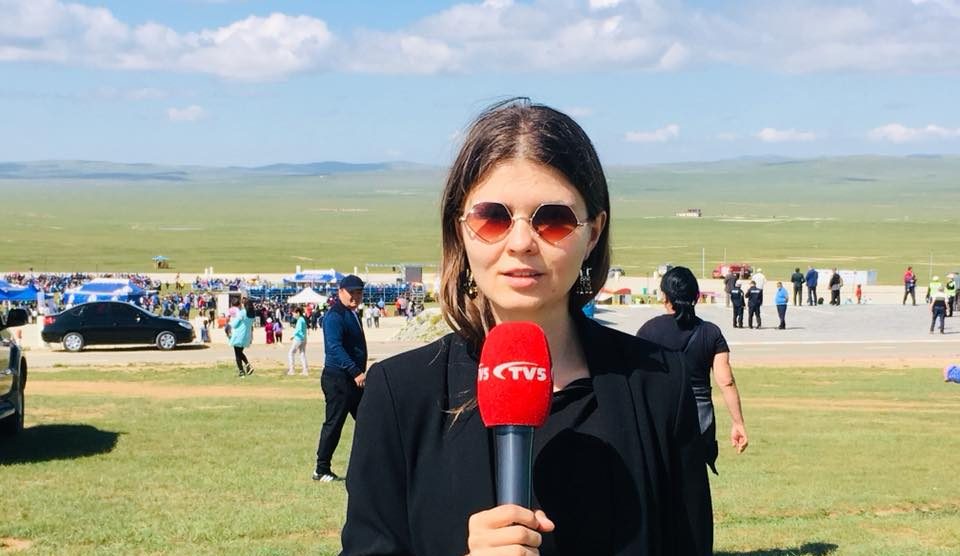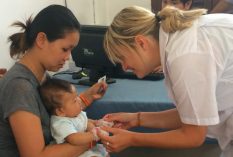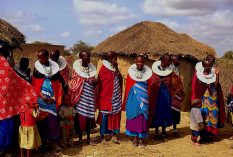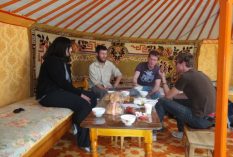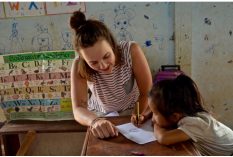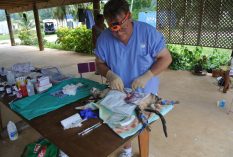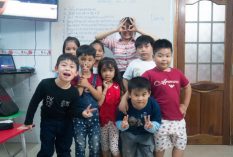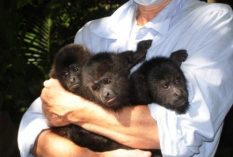Though my internship in Mongolia was quite short, it was very productive. I gained new experience and learned the way Mongolian TV works. I appreciate the opportunity to work with both MNB and TV5 channels. These two channels are very different. Therefore, I managed to observe TV journalism in Mongolia from various perspectives.
The first 3 days I spent working with MNB World at the ABU Asia-Pacific Robot Contest (ABU Robocon). As I was the only member of MNB World team who could speak Japanese, I assisted in communication with Japanese team and Japanese sponsors on site. It was a great opportunity for me to practise English-Japanese interpretation. Furthermore, I worked as a camera operator at the event. It was a good opportunity for me to master my camera operation skills, as I do not have many chances to film such big events as ABU Robocon by myself. Usually at such events I cooperate with a pro cameraman and only film by myself at the events of smaller scale. So, it was very exciting for me.
The rest of my time I worked with TV5 Mongolia. The biggest challenge for me was communication with the team as they could speak neither English nor Japanese. Only one lady could speak Russian, and nearly all my communication with the team was either via this person or via Google Translate. But on the bright side, I managed to pick up some Mongolian phrases.
Every day I went with a different reporter and a cameraman to cover daily news. Most of the time I just observed their work, but sometimes I interviewed foreigners in English, Russian or Japanese and did some fact-checking concerning foreign statements. I assisted to prepare numerous news, among them “WHO provides new equipment for the local hospital”, “3 killed in a car crash accident in Ulaanbaatar”, “Buddhism conference at Gandan Monastery”, “New fashion trends in Mongolian traditional clothes”, “A new road will ease the traffic in UB”, “International Marathon Mongolian Steppe”, “Beginning of a new study year at school”, “Khovd province watermelons”, “Korea and Mongolia cooperation conference”, “A man killed his wife”, “The 80th anniversary of the Victory of Khalkhin Gol Battles Exhibition” and so on.
In addition, my everyday task was to pick up recent news and articles about Mongolia from foreign resources. I checked resources in English, Japanese and Russian and then prepared a short summary in Russian so that my Russian-speaking colleague could translate it into Mongolian and make more news on Mongolia from a foreign perspective. We broadcasted about 2-4 such news every day.
I came to Mongolia in a very busy period. In fact, a lot of events for the 80th anniversary of the Victory of Khalkhin Gol battles were held in Mongolia within this period and it was a good chance for me to contribute to TV5 work. I even had an opportunity to participate in live broadcasting at Khui Doloon Khudag during the performance of the Russian Knights (Russian Air Force). I was on air commenting the event in Russian language. On 3rd of September Russian president visited Mongolia and parties signed a new treaty. Unfortunately, I could not cover this news by myself because as an intern I did not have a journalist ID and therefore had no access to the venue. However, even staying at TV5 office I provided my team with necessary information and updates from Russian media.
To sum up, I am very proud that I contributed in news coverage on relations between Mongolia and Russia, also I learned a lot about how Mongolian TV channels work. There a few things that differ from Russian and Japanese TV and I feel I can put into practice some of them in my future work. This internship made me better as a journalist. It was not only a good journalism experience, but also a great life experience for me. I met nomad families, I lived with a modern Mongolian family, made a lot of friends all over Mongolia, studied Mongolian worldviews, values, culture and history. This internship expanded my horizons. I feel very inspired to continue exploring the world and to keep improving my skills in journalism.
As for TV5 crew I feel that I made some small changes in their office too. As you might know, about 59% of Mongolia’s residents are under age of 30. Most of TV5 crew members are about 23-30 years old and do not have much experience in communicating in foreign languages. For many of them, I was the first foreigner they tried to communicate with on the daily basis. And they did their best. Many of them started paying more attention to foreign languages. I believe that if they know foreign language better, it could be really beneficial to TV5 work.
Live broadcast at Khui Doloon Khudag, Mongolia. One of the events for the 80th anniversary of the Victory of Khalkhin Gol Battles.
TV & Print Journalism Internship in Mongolia

